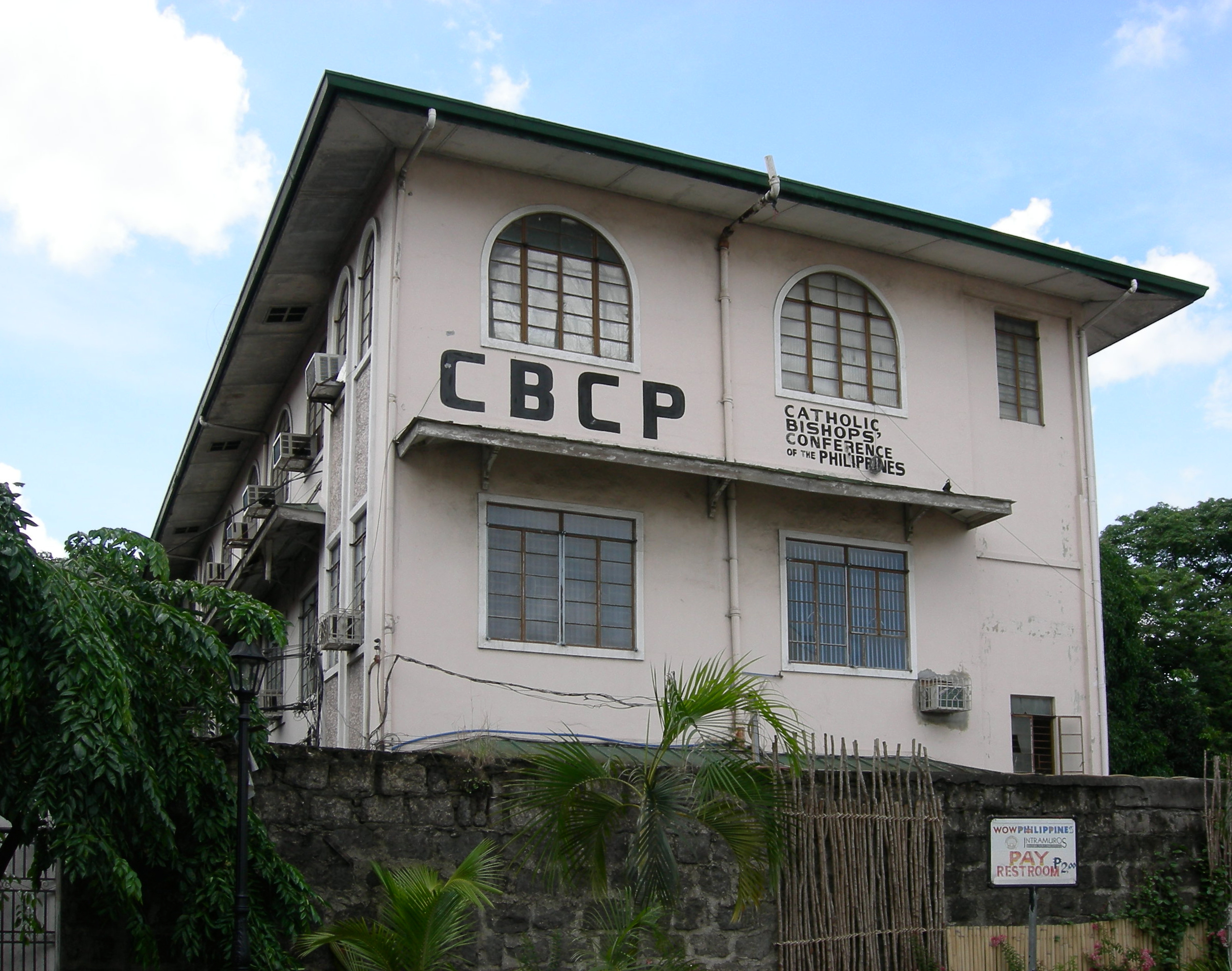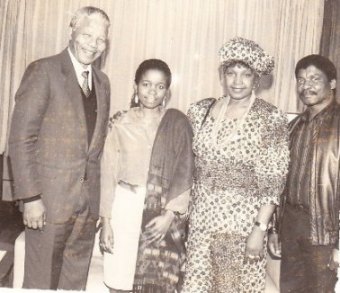|
New Nation (South Africa)
The ''New Nation'' was a leading anti-apartheid newspaper, published in South Africa between 1986–1997. It was unique in the period for having black owners and an almost entirely black staff. The newspaper was published on a weekly basis. It was an initiative of the SA Catholic Bishops Conference and activist-journalist Zwelakhe Sisulu who was the founding editor. Its early ethos was heavily shaped by liberation theology, and it shone a spotlight on black workers' rights and other aspects of inequality and racism, which led to hostile reactions from the state. As editor of the weekly newspaper, Sisulu championed the rights of black workers, incurring the hostility of the state. In 1986 Sisulu was arrested twice, the second arrest led to his imprisonment for two years in solitary confinement, and the newspaper was banned in 1988. In addition to state repression, the newspaper also had to struggle with financial challenges. Never able to obtain enough advertising to become ... [...More Info...] [...Related Items...] OR: [Wikipedia] [Google] [Baidu] |
Internal Resistance To South African Apartheid
Internal resistance to apartheid in South Africa originated from several independent sectors of South African society and took forms ranging from social movements and Nonviolent resistance, passive resistance to guerrilla warfare. Mass action against the ruling National Party (South Africa), National Party (NP) government, coupled with South Africa's growing international isolation and economic sanctions, were instrumental in leading to Negotiations to end apartheid in South Africa, negotiations to end apartheid, which began formally in 1990 and ended with South Africa's 1994 South African general election, first multiracial elections under a Universal suffrage, universal franchise in 1994. Apartheid was adopted as a formal South African government policy by the NP following their victory in the 1948 South African general election, 1948 general election. From the early 1950s, the African National Congress (ANC) initiated its Defiance Campaign of passive resistance. Subsequent c ... [...More Info...] [...Related Items...] OR: [Wikipedia] [Google] [Baidu] |
South Africa
South Africa, officially the Republic of South Africa (RSA), is the southernmost country in Africa. It is bounded to the south by of coastline that stretch along the South Atlantic and Indian Oceans; to the north by the neighbouring countries of Namibia, Botswana, and Zimbabwe; and to the east and northeast by Mozambique and Eswatini. It also completely enclaves the country Lesotho. It is the southernmost country on the mainland of the Old World, and the second-most populous country located entirely south of the equator, after Tanzania. South Africa is a biodiversity hotspot, with unique biomes, plant and animal life. With over 60 million people, the country is the world's 24th-most populous nation and covers an area of . South Africa has three capital cities, with the executive, judicial and legislative branches of government based in Pretoria, Bloemfontein, and Cape Town respectively. The largest city is Johannesburg. About 80% of the population are Black South Afri ... [...More Info...] [...Related Items...] OR: [Wikipedia] [Google] [Baidu] |
Catholic Bishops Conference
An episcopal conference, sometimes called a conference of bishops, is an official assembly of the bishops of the Catholic Church in a given territory. Episcopal conferences have long existed as informal entities. The first assembly of bishops to meet regularly, with its own legal structure and ecclesial leadership function, is the Swiss Bishops' Conference, which was founded in 1863. More than forty episcopal conferences existed before the Second Vatican Council. Their status was confirmed by the Second Vatican Council and further defined by Pope Paul VI's 1966 ''motu proprio'', ''Ecclesiae sanctae''. Episcopal conferences are generally defined by geographic borders, often national ones, with all the bishops in a given country belonging to the same conference, although they may also include neighboring countries. Certain authority and tasks are assigned to episcopal conferences, particularly with regard to setting the liturgical norms for the Mass. Episcopal conferences receive ... [...More Info...] [...Related Items...] OR: [Wikipedia] [Google] [Baidu] |
Zwelakhe Sisulu
Zwelakhe Sisulu (17 December 1950 – 4 October 2012) was a South African black journalist, editor, and newspaper founder. He was president of the Writers' Association of South Africa, which later became the Black Media Workers Association of South Africa (or Mwasa), and he led a year-long strike in 1980 for fair wages for black journalists. He was a victim of the Apartheid-era government in South Africa and was imprisoned at least three times for his journalism. After Apartheid ended, he became the chief executive officer of the South African Broadcast Corporation. Personal history Zwelakhe Sisulu's family is well known for its struggle against Apartheid in South Africa. He was the son of anti-Apartheid activists and African National Congress members Walter Sisulu and Albertina Sisulu. He was the brother of Max Sisulu, Speaker of the National Assembly, and Lindiwe Sisulu, Minister of Public Service and Administration. His father was sentenced to life in prison in 1964 when Zwel ... [...More Info...] [...Related Items...] OR: [Wikipedia] [Google] [Baidu] |
Racism
Racism is the belief that groups of humans possess different behavioral traits corresponding to inherited attributes and can be divided based on the superiority of one race over another. It may also mean prejudice, discrimination, or antagonism directed against other people because they are of a different race or ethnicity. Modern variants of racism are often based in social perceptions of biological differences between peoples. These views can take the form of social actions, practices or beliefs, or political systems in which different races are ranked as inherently superior or inferior to each other, based on presumed shared inheritable traits, abilities, or qualities. There have been attempts to legitimize racist beliefs through scientific means, such as scientific racism, which have been overwhelmingly shown to be unfounded. In terms of political systems (e.g. apartheid) that support the expression of prejudice or aversion in discriminatory practices or laws, racist ideology ... [...More Info...] [...Related Items...] OR: [Wikipedia] [Google] [Baidu] |
Solitary Confinement
Solitary confinement is a form of imprisonment in which the inmate lives in a single cell with little or no meaningful contact with other people. A prison may enforce stricter measures to control contraband on a solitary prisoner and use additional security equipment in comparison to the general population. Solitary confinement is a punitive tool within the prison system to discipline or separate disruptive prison inmates who are security risks to other inmates, the prison staff, or the prison itself. However, solitary confinement is also used to protect inmates whose safety is threatened by other inmates by separating them from the general population. In a 2017 review, "a robust scientific literature has established the negative psychological effects of solitary confinement", leading to "an emerging consensus among correctional as well as professional, mental health, legal, and human rights organizations to drastically limit the use of solitary confinement." The United Nations ... [...More Info...] [...Related Items...] OR: [Wikipedia] [Google] [Baidu] |
Winnie Mandela
Winnie Madikizela-Mandela (born Nomzamo Winifred Zanyiwe Madikizela; 26 September 1936 – 2 April 2018), also known as Winnie Mandela, was a South African anti-apartheid activist and politician, and the second wife of Nelson Mandela. She served as a Member of Parliament from 1994 to 2003, and from 2009 until her death, and was a deputy minister of arts and culture from 1994 to 1996. A member of the African National Congress (ANC) political party, she served on the ANC's National Executive Committee and headed its Women's League. Madikizela-Mandela was known to her supporters as the "Mother of the Nation". Born to a Xhosa royal family in Bizana, and a qualified social worker, she married anti-apartheid activist Nelson Mandela in Johannesburg in 1958; they remained married for 38 years and had two children together. In 1963, after Mandela was imprisoned following the Rivonia Trial, she became his public face during the 27 years he spent in jail. During that period, she rose to ... [...More Info...] [...Related Items...] OR: [Wikipedia] [Google] [Baidu] |
Nthato Motlana
Dr. Nthato Harrison Motlana (16 Feb 1925 – 1 December 2008) was a prominent South African businessman, physician and anti-apartheid activist. Early life He was born in Marapyane close to Pretoria. He attended and matriculated at Kilnerton High School, Pretoria. He then attended the University of Fort Hare and obtained a B.Sc. degree. Furthering his education, he took medicine at the University of the Witwatersrand. Banned by the government for five years, he need government permission to attend his graduation in 1954. In 1956 he became a resident doctor at Baragwanath Hospital. Life under Apartheid He became politically active at Fort Hare when he joined the African National Congress Youth League and later became its secretary. He was tried alongside Nelson Mandela by the Apartheid regime during the Defiance Campaign of 1951–52. He played a prominent role during the Soweto uprising as a member of the Black Community Programme and the Black Parents' Association which resul ... [...More Info...] [...Related Items...] OR: [Wikipedia] [Google] [Baidu] |
Sowetan
''The Sowetan'' is an English-language South African daily newspaper that started in 1981 as a liberation struggle newspaper and was freely distributed to households in the then apartheid-segregated township of Soweto, Johannesburg, Gauteng Province. It is one of the largest national newspapers in South Africa. Regarded as having a left-leaning editorial tone, it carries a readership of almost 2 million and a circulation of 124,000 in 2006. The newspaper is property of South African media company Arena Holdings (formerly Tiso Blackstar Group, Avusa, and Times Media Group). Before that, it belonged to Dr. Nthato Motlana (1925–30 November 2008), a prominent South African businessman, physician and anti-apartheid activist, who took a leading role in the formation of the New African Investments Limited (NAIL), which purchased ''The Sowetan'' following apartheid. History ''The Sowetan'' started in 1981, as replacement of the ''Post Transvaal'' newspaper, which itself consisted o ... [...More Info...] [...Related Items...] OR: [Wikipedia] [Google] [Baidu] |
Weekly Newspapers Published In South Africa
Weekly, The Weekly, or variations, may refer to: News media * ''Weekly'' (news magazine), an English-language national news magazine published in Mauritius *Weekly newspaper, any newspaper published on a weekly schedule *Alternative newspaper, also known as ''alternative weekly'', a newspaper with magazine-style feature stories *''The Weekly with Charlie Pickering'', an Australian satirical news program *''The Weekly with Wendy Mesley'', a Canadian Sunday morning news talk show *''The Weekly'', the original name of the television documentary series ''The New York Times Presents'' Other *Weekley, a village in Northamptonshire, UK *Weeekly, a South Korean girl-group See also * *Weekly News (other) ''Weekly News'' is generally a title given to a newspaper that is published on a weekly basis. Some examples of newspapers with Weekly News in their title include: Turks and Caicos Islands *''Turks and Caicos Weekly News'' United Kingdom *''The W ... * Weekley (surname) {{ ... [...More Info...] [...Related Items...] OR: [Wikipedia] [Google] [Baidu] |
Newspapers Established In 1986
A newspaper is a periodical publication containing written information about current events and is often typed in black ink with a white or gray background. Newspapers can cover a wide variety of fields such as politics, business, sports and art, and often include materials such as opinion columns, weather forecasts, reviews of local services, obituaries, birth notices, crosswords, editorial cartoons, comic strips, and advice columns. Most newspapers are businesses, and they pay their expenses with a mixture of subscription revenue, newsstand sales, and advertising revenue. The journalism organizations that publish newspapers are themselves often metonymically called newspapers. Newspapers have traditionally been published in print (usually on cheap, low-grade paper called newsprint). However, today most newspapers are also published on websites as online newspapers, and some have even abandoned their print versions entirely. Newspapers developed in the ... [...More Info...] [...Related Items...] OR: [Wikipedia] [Google] [Baidu] |




